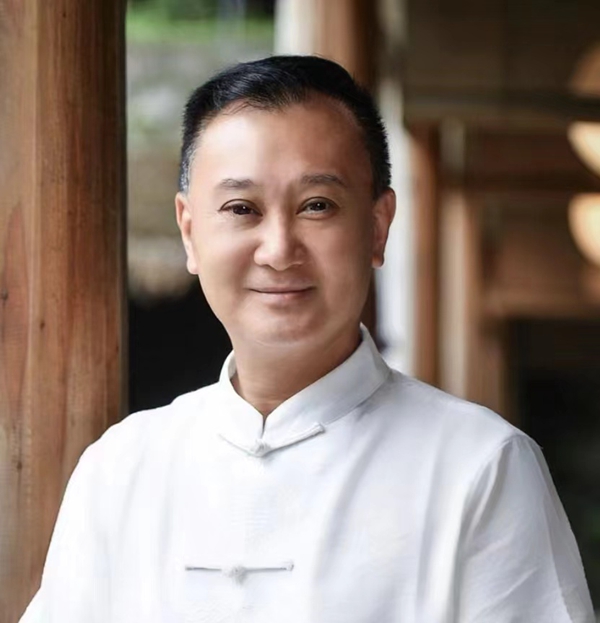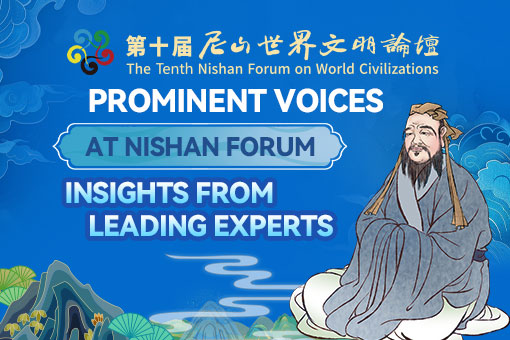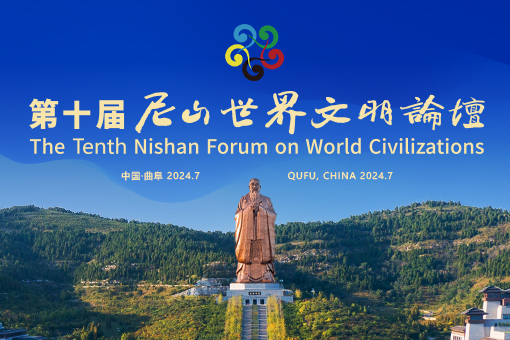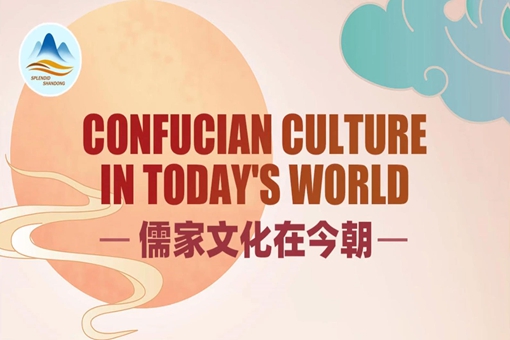Confucianism enhances modern civilization, cultural preservation with global appeal
(chinadaily.com.cn)| Updated : 2024-07-10
Print PrintEditor's Note: The 10th Nishan Forum on World Civilizations is being held in Qufu, Shandong province, the hometown of Confucius, from July 10 to 11, aiming to promote traditional Chinese culture and strengthen international cultural exchanges and cooperation. China Daily is inviting experts and scholars in related fields to share their insights into Confucianism, traditional Chinese culture and the dialogue among various civilizations.

Kong Zhong, executive chairman of the World Federation of Confucius' Descendants. [Photo provided to chinadaily.com.cn]
Q: Why do you think Confucianism is so popular in China and worldwide?
A: For over 2,000 years, Confucianism has been a mainstream part of China's culture. As China's national strength has increased, the influence of Chinese culture has grown day by day. The global recognition and acceptance of Confucianism have expanded along with the historic process of the great rejuvenation of the Chinese nation.
Continuity, innovation, unity, inclusiveness and peacefulness are five prominent characteristics of Chinese civilization, and these also define Confucianism. These advantages have allowed Confucianism to endure for over 2,000 years and shine anew in contemporary times.
Confucius, the founding sage of the Confucian school, is recognized by UNESCO as the foremost among the world's top 10 historical cultural figures. The immense influence of Confucius across time and space also ensures that Confucianism is widely embraced worldwide.
Q: How do Confucius's values contribute to modern civilization and cultural preservation?
A: The modern Chinese nation is rooted in the nation's excellent traditional culture and retains the main characteristics of Chinese culture. The Confucian school founded by Confucius, and the Confucian thought that formed out of it, are a mainstream part of China's traditional culture. They represent the core of Chinese culture, serving as the "root" and "background" of modern Chinese civilization. Hence, Confucius's values are deeply ingrained in every Chinese person, and it is a cultural responsibility for every Chinese descendant to uphold this tradition.
The modern Chinese nation is one that absorbs and incorporates the excellent achievements of all human civilizations. Confucianism advocates inclusiveness and adaptability to the times, with Confucius himself being revered as "the sage of the times". These characteristics allow Chinese civilization, centered on Confucian thought, to interact and learn from other world civilizations, thereby creating a new form of human civilization while advancing China's modernization and opening up a brighter future for humanity.
Chinese civilization is the oldest continuous civilization in the world. Its continuity ensures that the values of Confucius and the wisdom of Confucian thought can still be fully understood and recognized by modern society after more than 2,000 years. Chinese cultural classics, represented by works such as The Analects, The Great Learning and The Doctrine of the Mean, have profoundly influenced the thoughts, behaviors and souls of the Chinese people. This subtle influence, in turn, deeply affects the preservation and development of Chinese civilization.
Q: How do you view the role of technology in cultural preservation?
A: On the one hand, excellent traditional culture is the root and soul of the great rejuvenation of the Chinese nation. It must be well preserved and developed under the new conditions of the times. Therefore, we advocate for the "creative transformation and innovative development" of excellent traditional Chinese culture.
The widespread application of new technologies such as big data, cloud computing and artificial intelligence in the current era of technological development provides new opportunities for the creative transformation and innovative development of excellent traditional Chinese culture, offering important support for its preservation and development. Thus, we should actively embrace the development of world technological civilization, which is in tune with the progressive nature of Chinese civilization and a concrete manifestation of Confucius being the "sage of the times".
On the other hand, we must also recognize and be wary of the negative impacts of the rapid development of technology on human life. The explosion of information in the internet era, the constraints of mobile communication on human beings, and the damage caused by massive short video information to human thinking, among others, require that human cognition of new things and the corresponding improvement of laws and regulations keep pace with the rapid development of technology to avoid the adverse effects of technology.
Therefore, in such a rapidly changing era, we should place more emphasis on the "return to the origin and opening to new things" of traditional culture. The basic requirement to advance with the times and look to the future is to "not forget the origin," to return to the essence of human life, and to draw wisdom and strength from the classics of Chinese culture. This way, we will not lose our human identity in this complex modern world.

 Insights from the 10th Nishan Forum
Insights from the 10th Nishan Forum  The Tenth Nishan Forum on World Civilizations
The Tenth Nishan Forum on World Civilizations  Confucian culture thrives: Integrating its wisdom into modern value
Confucian culture thrives: Integrating its wisdom into modern value